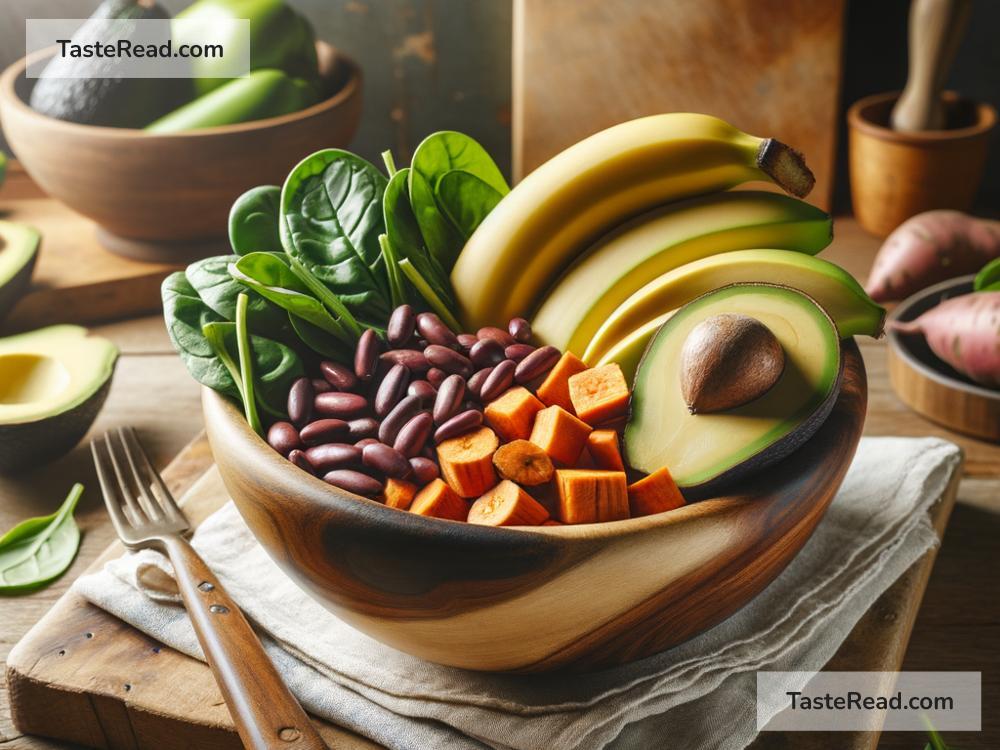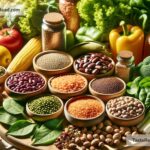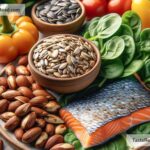The Importance of Potassium in Nutrition
When it comes to healthy eating, many people focus on vitamins like vitamin C or minerals like calcium. But there’s another essential nutrient that deserves more attention: potassium. This important mineral plays a huge role in keeping us healthy, yet most people don’t know enough about it. In this article, we’ll explore what potassium does, why it’s so important, and how to make sure you’re getting enough of it in your diet.
What is Potassium?
Potassium is a mineral and an electrolyte that helps your body function properly. Electrolytes are substances that carry electrical charges in the body, which are essential for processes like muscle contractions and nerve signals. Potassium works with other electrolytes like sodium and magnesium to keep your body’s systems balanced and running smoothly.
Your body doesn’t produce potassium on its own, so you need to get it from the foods you eat. It’s found naturally in many fruits, vegetables, and other healthy foods, making it easy to include in a balanced diet.
Why is Potassium Important?
Potassium is involved in so many vital functions that it’s hard to overstate its importance. Here are some of the key roles it plays in the body:
1. Keeps Your Heart Healthy
Potassium is crucial for your heart’s function. This mineral helps regulate your heartbeat by supporting the electrical signals that control your heart muscles. A potassium imbalance can lead to irregular heart rhythms, which can sometimes be dangerous.
2. Balances Fluids in the Body
Potassium works alongside sodium to manage fluid balance in your body. Sodium tends to pull water into cells, while potassium helps push it out. This balance is essential for keeping your blood pressure in a healthy range and preventing problems like dehydration or swelling.
3. Supports Muscle Function
Every time you move a muscle—whether it’s smiling, walking, or lifting weights—potassium is involved. Potassium helps your muscles contract and relax properly. Without enough potassium, you might experience muscle weakness, cramps, or even spasms.
4. Supports Nerves
Your nervous system relies on potassium to send messages between your brain and the rest of your body. These messages are responsible for everything from making your fingers flex to telling your stomach to digest food. Potassium ensures these signals are sent smoothly.
5. Helps Control Blood Pressure
High blood pressure, also known as hypertension, is a common health problem that can lead to heart disease and stroke. Potassium helps counteract the effects of sodium, which can raise blood pressure. Eating potassium-rich foods is a simple way to keep your blood pressure in check.
Signs of Low Potassium Levels
Not getting enough potassium can lead to a condition called hypokalemia, which can cause unpleasant and sometimes serious symptoms. Some common signs of low potassium include:
- Weakness or fatigue
- Muscle cramps or spasms
- Irregular heartbeats (arrhythmia)
- Constipation
- Tingling or numbness
Low potassium levels can happen if you don’t eat enough potassium-rich foods or if you lose potassium through excessive sweating, diarrhea, or certain medications. While severe potassium deficiency is rare in healthy individuals, mild deficiencies can still affect your overall health.
How Much Potassium Do You Need?
The amount of potassium you need depends on your age, sex, and overall health, but most adults are recommended to consume about 2,600 to 3,400 milligrams of potassium daily. This might sound like a lot, but it’s easy to meet these levels if you’re eating a balanced diet full of whole foods.
Foods High in Potassium
Luckily, there are plenty of delicious foods that are rich in potassium. Here are some of the best sources:
- Bananas: Famous for their potassium content, bananas make an easy and portable snack.
- Potatoes and Sweet Potatoes: Both regular potatoes and sweet potatoes are excellent potassium sources, especially if you eat the skin.
- Spinach and Kale: Leafy greens like spinach and kale pack a potassium punch while also being rich in other nutrients.
- Avocados: These creamy fruits are a nutrient powerhouse and high in potassium.
- Beans and Lentils: Legumes like black beans and lentils are great plant-based sources of potassium.
- Oranges and Orange Juice: Citrus fruits like oranges can boost your potassium intake.
- Yogurt: Dairy products like yogurt contain potassium and are also good for your gut health.
Tips for Including More Potassium in Your Diet
- Add a banana to your breakfast or midday snack.
- Make a salad with spinach, kale, and avocado.
- Include beans in your soups, stews, or salads.
- Roast sweet potatoes for a delicious, nutrient-packed side dish.
- Drink a glass of orange juice with breakfast.
Conclusion
Potassium is a vital nutrient that your body needs every day to stay healthy. From keeping your heart and muscles working properly to managing your blood pressure and fluid balance, potassium plays a key role in maintaining your overall health. The good news is that you can easily get enough potassium by eating a variety of fruits, vegetables, and other whole foods.
Now that you know the importance of potassium, take a moment to look at your diet and think about whether you’re getting enough of this vital mineral. Making small changes—like adding a banana to your snack or eating a baked potato for dinner—can go a long way in supporting your health and wellness. So start today, and give your body the potassium it needs!


